Pregnant woman Lien arrived at Quang Nam Central General Hospital on October 31 in labor, with Rhesus negative blood type (Rh-), an extremely rare blood type.
In obstetrics, this is a high-risk case because it is difficult to find a blood source for transfusion when there is postpartum blood loss and incompatibility between mother and child blood types.
Upon receiving the patient, the team of doctors from the Department of Obstetrics and Gynecology, Quang Nam Central General Hospital, in coordination with experts from the Department of Hematology - Blood Transfusion and the General Planning Department, quickly reviewed the data source of Rh- rare blood donors being managed by the hospital and linked with other medical facilities, prepared blood reserves and were ready to intervene when necessary.
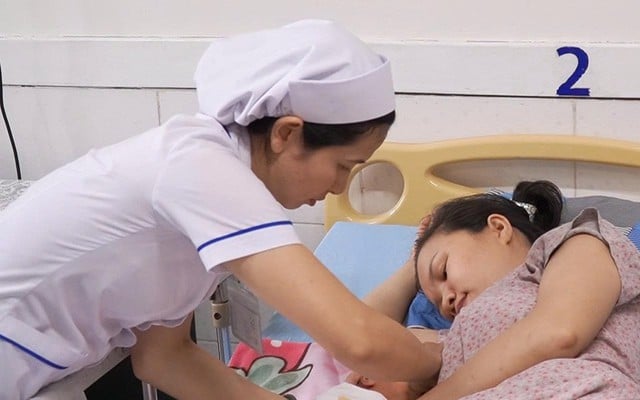
Mother and child are healthy at Quang Nam Central General Hospital.
Thanks to the urgent and professional coordination, the normal delivery went smoothly, with both mother and child safe and sound. Sharing after giving birth, Ms. Lien emotionally said: "I knew I had a rare blood type so I was worried, but when the doctors here consulted, prepared me thoroughly and closely monitored me, I felt completely at ease. During the birth, I felt warm because the hospital had taken care of everything. Thanks to that, both mother and baby were healthy."
Dr. Pham Minh Vuong, Head of the Department of Obstetrics and Gynecology, said: "Pregnant women who test negative for Rh and have not received anti-D antibodies (those with Rh-positive blood have a protein called the D antigen on the surface of red blood cells) are recommended to receive anti-D immunoglobulin prophylaxis. This is called routine antenatal anti-D prophylaxis (RAADP) and is done with a single injection of 1500 IU between the 28th and 30th weeks of pregnancy."
After birth, the baby's blood type will be tested. If the test results show that the baby is Rh+, the mother will be given an additional injection of anti-D immunoglobulin. This injection should be given within 72 hours after birth to be effective in preventing the next pregnancy. This is called postpartum prophylaxis" - Dr. Vuong added.
The success of this birth demonstrates the professional competence, readiness and dedication of the medical team at Quang Nam Central General Hospital in handling complex obstetric situations.
In particular, proactively building a database of rare blood donors helps hospitals respond promptly, preventing patients from having to be transferred to distant hospitals, avoiding danger and additional costs.
Obstetricians of Quang Nam Central General Hospital recommend that pregnant women should have their ABO and Rhesus blood group tested early in pregnancy, to receive advice and receive the correct Anti-D injection, and plan to give birth at hospitals with specialized expertise and blood donations, contributing to protecting the health of mother and baby throughout the journey of motherhood.
Source: https://suckhoedoisong.vn/ca-sinh-dac-biet-cua-nguoi-me-nhom-mau-hiem-nhat-viet-nam-169251105093648239.htm







![[Photo] Closing of the 14th Conference of the 13th Party Central Committee](https://vphoto.vietnam.vn/thumb/1200x675/vietnam/resource/IMAGE/2025/11/06/1762404919012_a1-bnd-5975-5183-jpg.webp)
















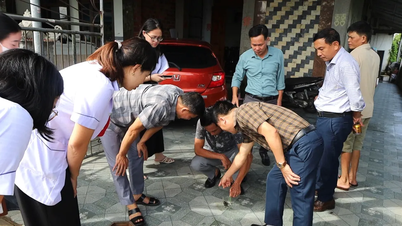







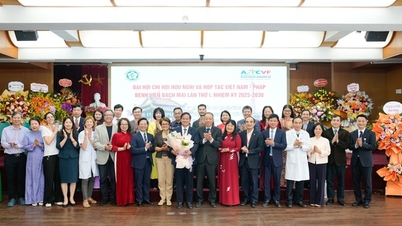



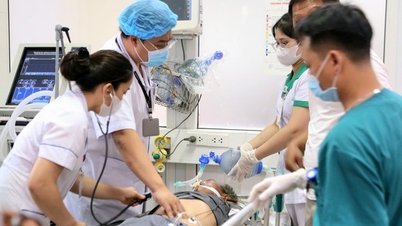




























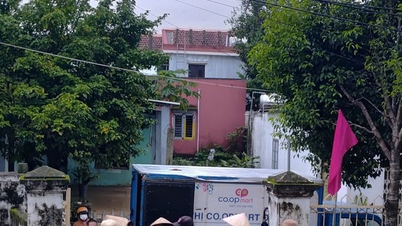













































Comment (0)